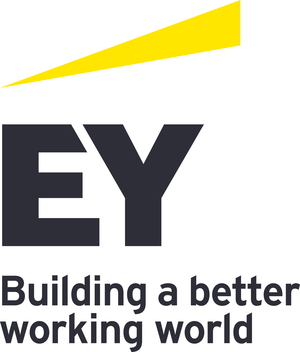Culture has moved to center stage as financial services firms continue to revamp risk management functions
NEW YORK, July 30, 2013 /PRNewswire/ -- Five years after the global financial crisis, leading financial services firms have continued to take major steps to remake their risk governance frameworks and have made substantial progress in implementing risk-management changes, according to Remaking financial services: risk management five years after the crisis, a new report by EY in conjunction with the Institute of International Finance (IIF). Among the key findings, a renewed emphasis on risk culture has moved to the top of the list as a chief focus for boards and senior management.
Key findings are:
- Banks are reviewing their cultures across legal entities and business units, acting on lessons from the crisis and high profile conduct cases.
- There has been increased focus on operational and reputation risk.
- Banks have enhanced risk management, but are still working to operationalize changes, for example, embedding risk appetite remains a challenge for 48% of respondents.
- Moves to enhance risk transparency are driving further enhancement of stress testing.
- Business models are being rethought in the light of regulatory changes, with banks exiting activities (44% of respondents), markets and geographies.
The report is the fourth annual study of its kind, based on a survey of 74 firms across 36 countries, including interviews with Chief Risk Officers (CROs) and other senior risk executives as well as online survey responses from 66 global banks and 8 insurance companies.
Patricia Jackson, EY's Head of Financial Regulatory Advice for Europe, Middle East, India and Africa (EMEIA), who directed the study, said: "Much has been achieved in improving risk management frameworks but more change is still needed. Embedding risk appetite remains an aspiration in many banks and enhancements are ongoing to improve stress testing and overall risk transparency. IT and data remain impediments in many areas. Nonetheless the largest change in this year's survey is the further emphasis on reviewing culture and on operational and reputation risk."
Rick Waugh, Vice Chairman of the IIF and Chairman of its Committee on Governance and Industry Practices and CEO of Scotiabank, added: "This year, we've seen a large shift in the focus of firms towards testing culture and then shifting the culture as necessary. Clarity on the values is essential, reinforced by training, but most importantly, accountability throughout the organization. The fact that 44% of respondents are actually exiting businesses reflects the changing risk appetite. The dramatic changes we are seeing provide hard evidence that a changed risk culture is being embedded in our organizations."
Additional significant findings of the report include:
- Banks are still ratcheting up board oversight of risk (51% of respondents). And there is a focus on board skills to make this effective — 34% have added board members with risk expertise in the past year.
- Liquidity risk remains at the top of agendas, with a slow move away from supremacy of ALM committees towards a wider executive focus on balance sheet risks.
- Capital management is being rethought across the industry, with 55% of respondents aligning capital allocation with regulatory capital.
Tim Adams, President and CEO of the IIF, stated: "In the years since the crisis, financial services companies have taken a hard look at their internal risk management frameworks, practices and actions. The findings of this year's study show that the industry has recognized the need for change, and further, that those changes are being put into place. While there is more work to be done to make these new processes operational, the boards and management of these firms are well on their way to executing the changes necessary to operate in today's interconnected and global financial system."
Please visit www.ey.com/banking to download the full report.
About EY
EY is a global leader in assurance, tax, transaction and advisory services. The insights and quality services we deliver help build trust and confidence in the capital markets and in economies the world over. We develop outstanding leaders who team to deliver on our promises to all of our stakeholders. In so doing, we play a critical role in building a better working world for our people, for our clients and for our communities.
EY refers to the global organization and may refer to one or more of the member firms of Ernst & Young Global Limited, each of which is a separate legal entity. Ernst & Young Global Limited, a UK company limited by guarantee, does not provide services to clients. For more information about our organization, please visit ey.com.
This news release has been issued by EYGM Limited, a member of the global EY organization that also does not provide any services to clients.
About IIF
The Institute of International Finance, Inc. (IIF) is a global association of financial institutions. Created in 1983 in response to the international debt crisis, the IIF has evolved to meet the changing needs of the financial community. Members include most of the world's largest commercial banks and investment banks, as well as a growing number of insurance companies and investment management firms. Among the Institute's members are commercial and investment banks, sovereign wealth funds, asset managers, hedge funds, insurance companies, multinational corporations, law firms, export credit agencies, multilateral agencies, development banks, and other organizations providing products and services to financial services community. The Institute currently has over 450 members headquartered in more than 70 countries in Africa, the Middle East, North and South America, Europe, and Asia.
SOURCE EY
WANT YOUR COMPANY'S NEWS FEATURED ON PRNEWSWIRE.COM?
Newsrooms &
Influencers
Digital Media
Outlets
Journalists
Opted In





Share this article